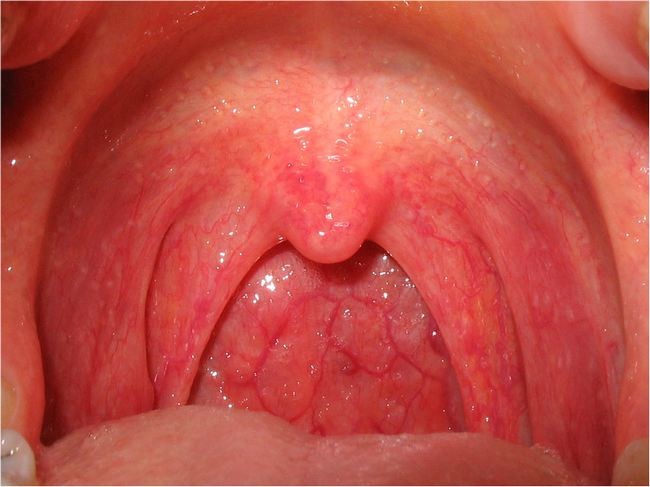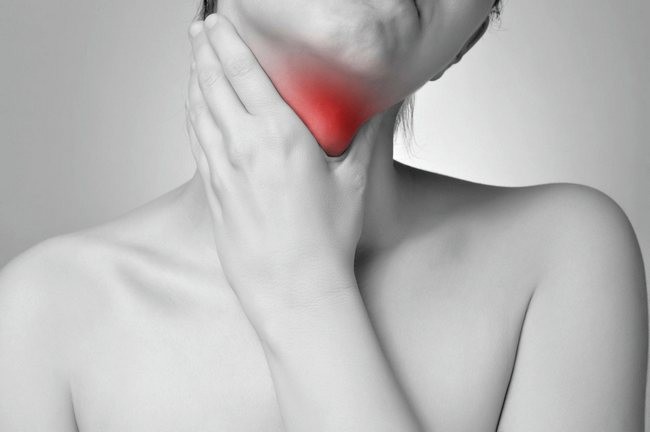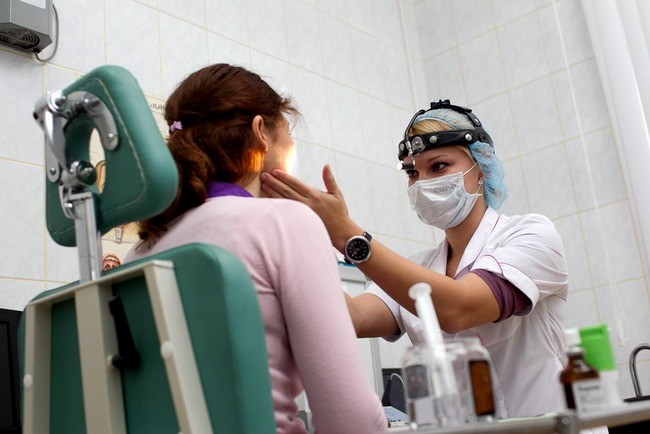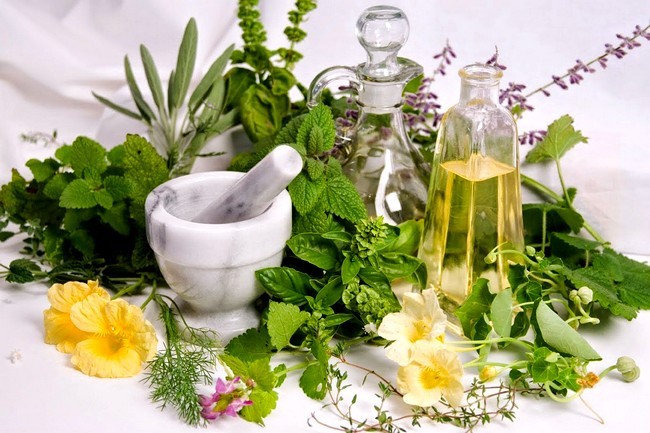Inflammation of the bacterial or viral nature, covering the mucous membrane of the pharynx, is called pharyngitis. There is an opinion that patients do not need antibiotics in treatment, since pharyngitis is obsolete for two weeks without specific therapy. Let's find out if this is really so.
Content
The best treatment for pharyngitis is its competent warning. But if you failed to avoid trouble, you need to learn about the disease as much as possible in order to provide a shortage of worthy resistance.
Why is pharyngitis arise
Doctors call more than one factor provoking the development of the inflammatory process in the throat:
- The impact on the throat of cold, dusty or highly contaminated air.
- Irritation of the mucosa with aggressive chemical compounds (tobacco smoke, ethyl alcohol in alcohol).
- The activity of streptococci, staphylococcus and pneumococci.
- The activity of adenoviruses, influenza viruses and fungus Candida.
- The presence of an open focus of inflammation in the nasopharynx (sinusitis, rhinitis, caries).
- Individual features of anatomy of the nasopharynx mucosa and gastrointestinal tract.
- The presence of allergies.
- Bad habits (addiction to cigarettes).
- Surgical removal of palatine tonsils.
- The lack of full nasal breathing, which is compensated by breathing through the mouth.
- Violations of endocrine etiology (for example, menopause).
- Excessive use of vasoconstrictive drops with a runny nose.
- Retinol deficiency.
- The presence of diabetes in a history of mellitus.
Features of the inflammatory process
Depending on the nature of the course of pharyngitis, it is acute and chronic.
Acute pharyngitis occurs when any negative effect was exerted on the mucous membrane. An irritating factor can be an infection, alcohol, dust. In most cases, the disease proceeds favorably.
Chronic pharyngitis appears against the background of an acute type of disease, but in some cases when the mucous membrane of the throat is irritated for a long time, it can develop independently. During chronic pharyngitis, a logical alternation of remissions and relapses occurs.
At the location of the pharyngitis, they are divided into:
- upper (the destruction site - nose and sip);
- medium (mouth and sip);
- lower (larynx and sip).
Based on morphological changes, the chronic form of the disease is divided into such forms:
- simple (catarrhal pharyngitis);
- hypertrophic (granulous pharyngitis);
- atrophic.
Symptoms of pharyngitis
About 70% of all cases of inflammation of the larynx provokes the activation of viruses, among which rhinovirus, coronavirus adenovirus, influenzid and paragricppa virus can be called the most harmful. Rhinoviruses are recognized as a typical pathogen of pharyngitis.
Signs of acute pharyngitis
- Unpleasant soreness, a feeling of dry throat, pain when swallowing, which becomes especially painful at the moment of an empty sip.
- General weakness, fever to 38 0C (not always).
- Irradiation of pain from the throat in the ears.
- Increased and painful lymph nodes.
- The redness of the back of the pharynx and palatine arcs (the tonsils are not affected at the same time).
- The presence of single irritated lymphoid granules on the mucosa.
Acute pharyngitis can be one of the symptoms of such dangerous diseases such as measles, scarlet fever and indigenous rubella. As an independent pharyngitis disease in children practically does not develop, most often the ailment occurs as part of the clinical picture of microbial and viral infections.
Signs of chronic pharyngitis
- Dryness when swallowing.
- A lump in the throat, which is why there is a constant desire to clench. The cough with pharyngitis is very specific - very stubborn and dry.
- Closing mucus on the back of the pharynx. Patients, forced to constantly swallow it, are quickly annoyed, lose their appetite and sleep poorly.
What is the danger of pharyngitis
With appropriate treatment among patients with pharyngitis, a rapid tendency to recovery is observed. The situation is completely different if you do not start treating an inflammatory disease in time. Pharyngitis is dangerous for the development of the following complications:
- glomerulonephritis;
- heart and renal failure;
- rheumatism;
- phlegmonous sore throat, in which lymph nodes are most suffered by;
- pig (mumps);
- inflammation of the middle ear;
- inflammatory reaction affecting the larynx and voice folds;
- bronchial pneumonia;
- bronchitis;
- tracheitis.
Diagnosis of the disease
To confirm the diagnosis of pharyngitis, otolaryngologists use such diagnostic techniques:
- visual assessment of the patient's condition;
- analysis of a swab from the pharynx for viruses and bacteria to clarify the origin of the pathogen.
How to cure pharyngitis
In order for the treatment of an inflamed larynx to be obviously effective, it is necessary to eliminate the cause of its development. If the nature of the disease is bacterial - the activity of the pathogenic pathogen is suppressed using antibacterial drugs. If pharyngitis arose on the basis of prolonged exposure to the larynx of irritating factors such as dust or smoke, you need to think about changing the place of work or about reliable measures of personal protection.
No matter what causes the development of the inflammatory process in the throat, you need to quit smoking. This is the most important condition for the speedy recovery.
Antibiotics in pharyngitis are prescribed based on the specifics of a particular case. Symptoms of the bacterial and viral inflammatory process are practically no different from each other, which is the main problem in antibacterial pharyngitis therapy. That is why antibiotics in this case are prescribed mainly for the prevention of the infectious complication of the disease (for example, with a prolonged course of pharyngitis, with complications accompanying it in the form of purulent otitis media or bronchitis).
Antibiotics for the treatment of pharyngitis in adults
Adult patients are prescribed antibiotics to suppress the activities of pathogenic bacteria, which provoked inflammation of the mucous membrane of the larynx, as well as to prevent the development of pharyngitis complications. Antibacterial drugs for the treatment of pharyngitis in adults are appropriate only if there are bacteriological research data, which confirmed the bacterial nature of the disease.
To suppress the inflammatory process with pharyngitis, mainly antibacterial drugs based on penicillin are used. If during the treatment the pathogen's resistance to this active substance is noted, oral products from a number of cephalosporins (cephasolin, ceftriaxone) can be used. In case of an allergic reaction of the patient to β-lactam preparations, macrolides (azithromycin, erythromycin) and lincomicides, clindamycin resort to the treatment of macrolides (asytromycin, clindamycin).
Antibiotics for the treatment of pharyngitis in children
Antibacterial drugs for the treatment of children suffering from pharyngitis are justified only with a high probability of complications. When the disease proceeds easily, it is better to abandon the idea of \u200b\u200beliminating it with antibiotics.
Antibacterial solutions and local aerosols are very convenient in the treatment of pharyngitis in children: Miramistin, Orasept, Hexoral. If the course of pharyngitis in a child is fraught with tonsillitis, there is an indication for the use of an antibiotic. After 3 years, the doctor can prescribe candies with a wide spectrum of antibacterial action-Falimint or Strepils.
Antibacterial treatment for the child will be prescribed without fail if the bacterial nature of pharyngitis was established (the smear showed staphylococcus or hemophilic sticks).
Very carefully, antibiotics in the form of aerosols for babies 2 years and younger should be prescribed. The injection of the medicine can be a surprise for the child, which will entail a reflex spasm of the larynx and suffocation. To prevent this from happening, the antibacterial solution is sprayed onto the inner surface of the baby’s cheeks, and not in the direction of the throat. After using the medicine, a sick child should not eat and drink for 1 - 1.5 hours.
Antibiotics for the treatment of pharyngitis and laryngitis
The frequent of pharyngitis is laryngitis, since the inflammatory process, rapidly developing, quickly throws from the pharynx to the larynx. When inhalations and rinsing for a long time cannot improve the patient's condition, antibiotics are connected to treatment. Mostly used antibacterial drugs of the penicillin series, and in the case of their low efficiency - semi -synthetic penicillin agents (ampicillin, augmentin, Ospen). In a complex with antibiotics, the patient can prescribe medicines for coughing. This is necessary to prevent the spread of infection to the bronchi.
In order to minimize the negative effect of antibacterial agents on the intestinal microflora, fresh dairy products are used daily during the treatment of pharyngitis, as well as take bifido and lactobacilli capsules (Acypol, Biform, Linex, etc.)
Antibiotic therapy in the treatment of pharyngitis can be supplemented with rinsing the throat with solutions of finished tinctures - Rotokan, Miramistin, Romazulan.
The throat with pharyngitis needs to be protected: follow the doctor’s recommendations, talk in a whisper, so as not to strain the ligaments, drink a lot of warm drinks, abandon dishes that have an irritating effect on the mucous membrane and receptors of the oral cavity.
How to treat pharyngitis with folk remedies
Phytotherapy with medicinal plants has always remained relevant with inflammatory diseases of the throat. This is primarily associated with anesthetic, mitigating, anti -inflammatory and tonic effect of herbs. After a preliminary consultation with the attending physician, the patient may take care of pharyngitis at home.
Typically, medicinal plants are used to rinse the throat and inhalation. The procedures are carried out 3 to 4 times during the day, using warm healing infusions. To prepare the product, they usually take 10 g of raw materials per 200 ml of water.
- Combine 50 ml of peppermint leaves and 50 ml of yarrow grass, then add 100 ml of Kalina's bark, prepared at the rate of 15 g per 200 ml of water to them. Use inhalations.
- You will need equal parts of calendula flowers, chamomile, plantain and sage leaves. Pour 15 g of the general fee with water and boil for 3 minutes, then leave for 40 minutes. Rinse the sore throat with a warm solution 5 - 6 times during the day.
- Take 5 g of linden, 5 g of nails and 10 g of sage leaves. Pour 1 tbsp. l. Pour the herbal collection of 200 ml of boiling water, leave for 1 hour, and then use 20 - 30 ml of the product per 1 inhalation.
- Prepare a collection of blackcurrant leaves, chamomile flowers and sage (5 g of each ingredient). Pour raw materials 1 tbsp. water and boil for 5 minutes, then a healing solution will need another 1 hour to brew. Strain the finished solution and add 3 - 5 drops of fir oil to it. Warm "medicine" must be drunk in small sips before bedtime.
- With severe inflammation of the throat, make 2 - 3 peas of cloves (meaning spice). Repeat every 3 - 3.5 hours until noticeable relief.
- Place the sore throat with a chamomile compress. For its preparation, pour 1 tbsp. l. dry chamomile flowers 2 tbsp. boiling boiling water. Insist the product for a quarter of an hour, then soak the gauze napkin in a grass solution, squeeze the fabric and wrap your neck. Do not remove the compress until the napkin completely cools down.
- Boil pine cones and needles in a volume of 20 g per 250 ml of water. Within 5 - 7 minutes, inhale the pair of the finished tool. To improve the condition with severe sore throat, 5-6 inhalations will be needed.
- Another effective medicine in the home treatment of pharyngitis is the following solution: mix the decoction of the shoots of the omela (15 g of raw materials per 200 ml of water) and chamomile infusion (15 g of flowers per 200 ml of water). Inhale the hot agents - 100 ml of solution 1 time.
Prevention of the disease
Your throat will definitely not make friends with pharyngitis if you follow the following recommendations:
- Start systematically temper the body.
- Get rid of addictions - once and for all, abandon smoking and alcohol.
- If you suffer from a disorder of nasal breathing, contact an otolaryngologist to solve the problem.
- Moisten the air in the room, especially before going to bed.
- Eat raw garlic regularly.
- Buy a new toothbrush once a month.
- Take complex vitamin preparations in the offseason.

















Comments
a couple of years ago, there was no side of metrogils from the same problem, there were no side effects ...
I’m not a fan of peeling at all, it saves from acne of metrogil, it also smoothes it ...
Great article! ...
I take the second course of the Capsules Climafite 911. The tides went very quickly. It became calmer, irritability went away and I sleep well ...
i also noticed - it is worth nervous, everything immediately affects the face. Therefore, I try to avoid conflicts and unpleasant people. Of the creams, I like Miaflow from wrinkles - smoothes not only small wrinkles ...